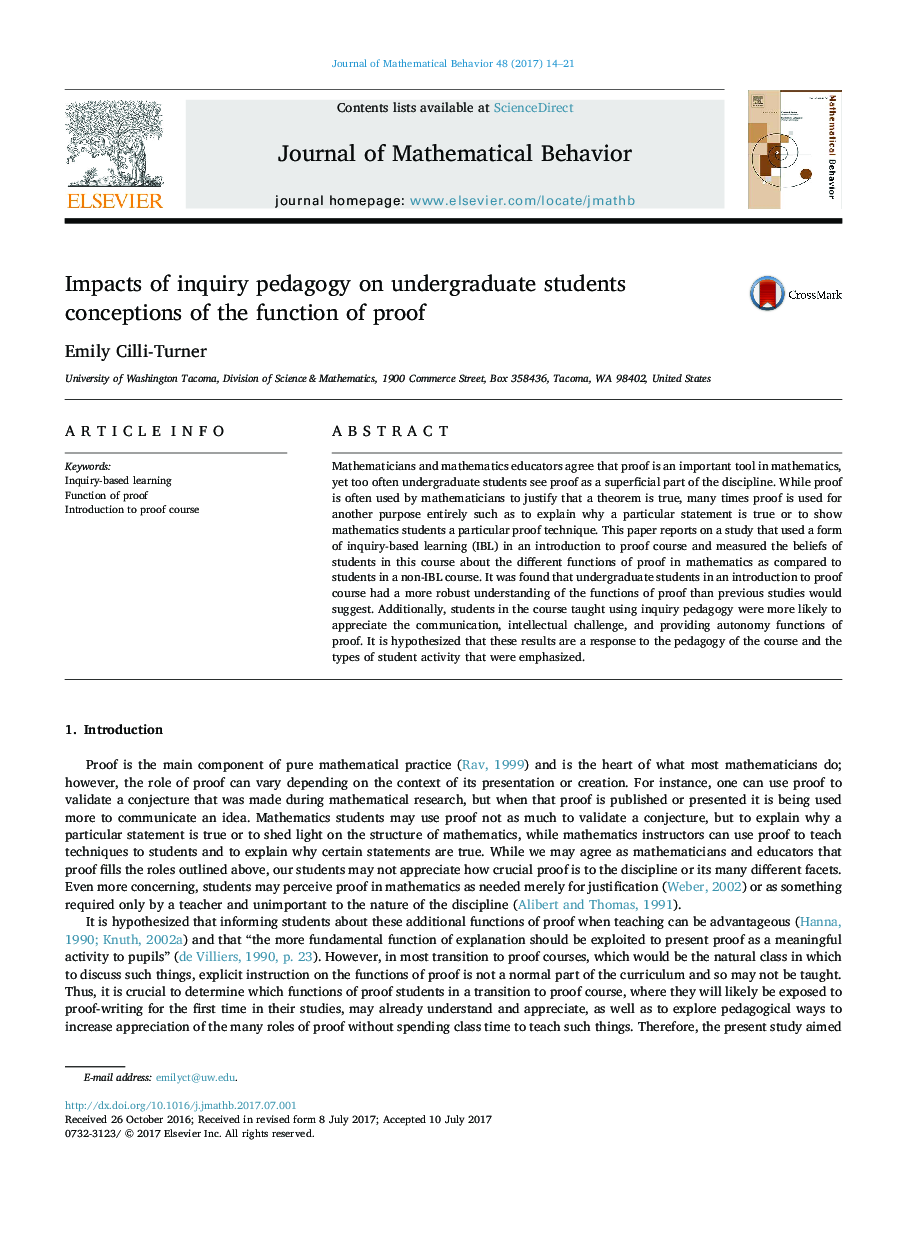| Article ID | Journal | Published Year | Pages | File Type |
|---|---|---|---|---|
| 4939263 | The Journal of Mathematical Behavior | 2017 | 8 Pages |
Abstract
Mathematicians and mathematics educators agree that proof is an important tool in mathematics, yet too often undergraduate students see proof as a superficial part of the discipline. While proof is often used by mathematicians to justify that a theorem is true, many times proof is used for another purpose entirely such as to explain why a particular statement is true or to show mathematics students a particular proof technique. This paper reports on a study that used a form of inquiry-based learning (IBL) in an introduction to proof course and measured the beliefs of students in this course about the different functions of proof in mathematics as compared to students in a non-IBL course. It was found that undergraduate students in an introduction to proof course had a more robust understanding of the functions of proof than previous studies would suggest. Additionally, students in the course taught using inquiry pedagogy were more likely to appreciate the communication, intellectual challenge, and providing autonomy functions of proof. It is hypothesized that these results are a response to the pedagogy of the course and the types of student activity that were emphasized.
Keywords
Related Topics
Physical Sciences and Engineering
Mathematics
Applied Mathematics
Authors
Emily Cilli-Turner,
